Francis isn't the first Pope to win TIME's Person of the Year
How does Francis stack up against his predecessors?

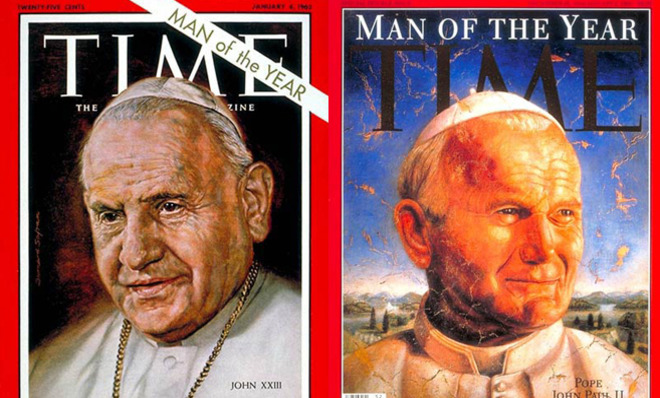
A free daily email with the biggest news stories of the day – and the best features from TheWeek.com
You are now subscribed
Your newsletter sign-up was successful
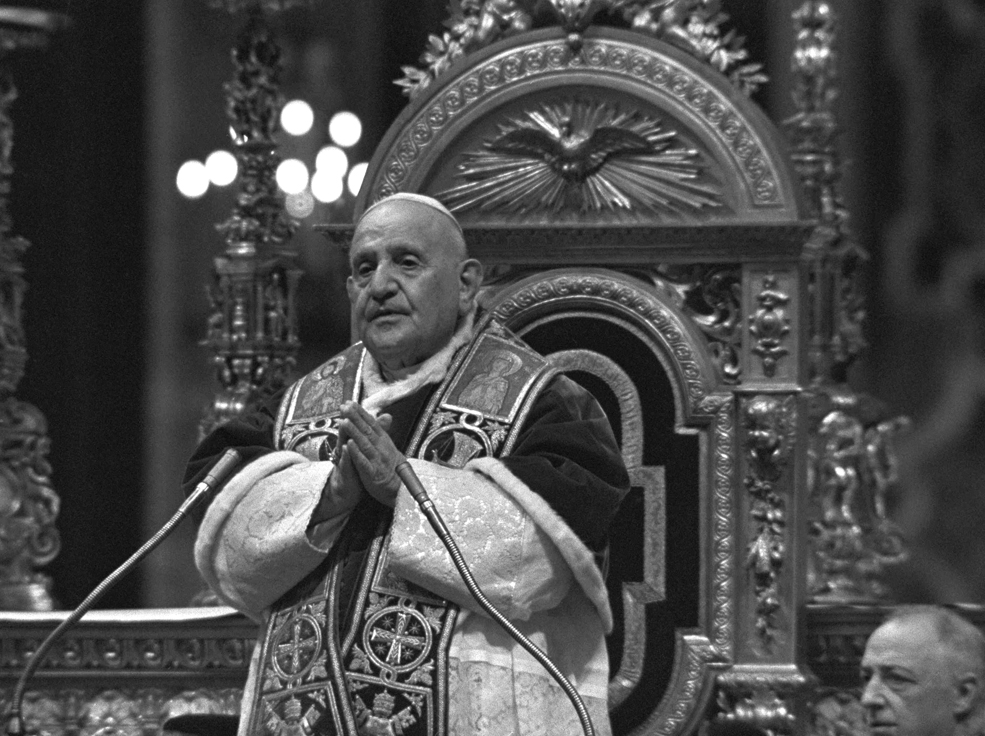
1962: Pope John XXIII
After four years at the head of the Roman Catholic Church, Pope John XXIII convened an Ecumenical Council called Vatican II in 1962. This rare event gathered together the church's global leaders in an attempt to address relations between the Roman Catholic Church and the modern world.
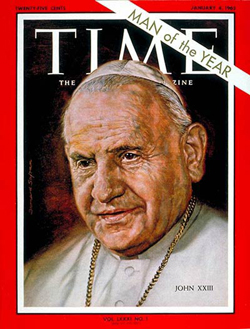
More than halfway into the 20th century, Pope John looked around and realized that the world was undergoing rapid change. Progress in science and the economy, as well as changing moral values and politics, were affecting the way people thought, acted, and lived together. The goal of Vatican II was to realign the church, essentially making it more Catholic and less Roman. In doing so, Pope John stretched out a hand of friendship to non-Catholics and made a bid for Christian unity.
The Week
Escape your echo chamber. Get the facts behind the news, plus analysis from multiple perspectives.

Sign up for The Week's Free Newsletters
From our morning news briefing to a weekly Good News Newsletter, get the best of The Week delivered directly to your inbox.
From our morning news briefing to a weekly Good News Newsletter, get the best of The Week delivered directly to your inbox.
It was Pope John's historic gesture that TIME said "made the biggest individual imprint on the year."
Pope John even beat out President Kennedy, who that year brought a successful resolution to the Cuban Missile Crisis, a Cold War turning point.
At the time, American theologians said Pope John's impact could be as "profound as anything since the days of Martin Luther." Indeed, he was one of the most popular popes of modern times, whose warmth, simplicity, and charm won the hearts of Catholics, Protestants, and non-Christians alike, wrote TIME.
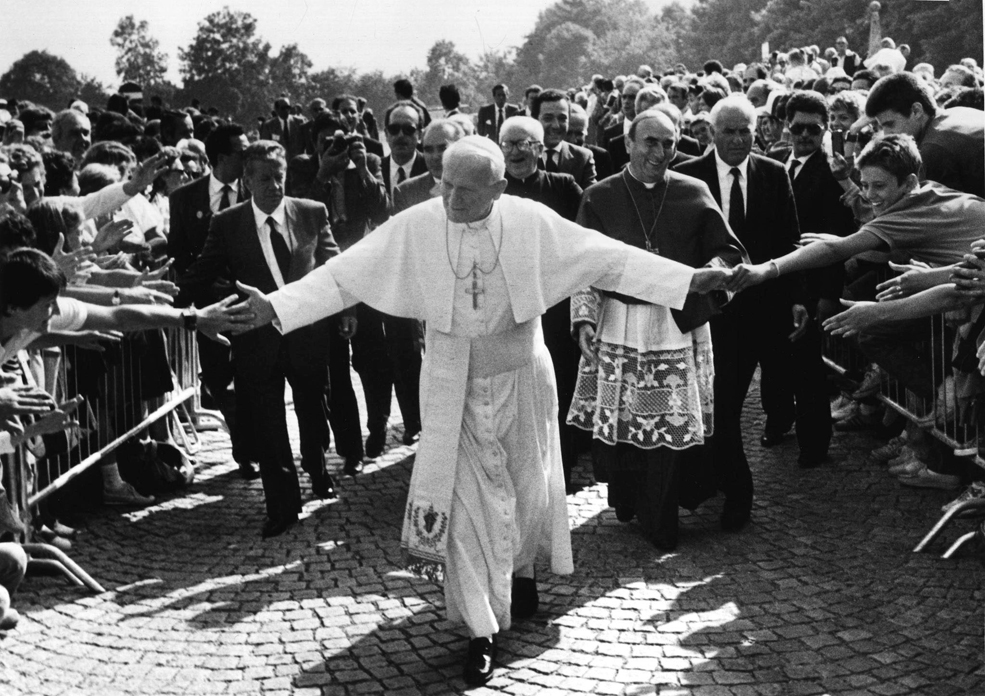
1994: Pope John Paul II
A free daily email with the biggest news stories of the day – and the best features from TheWeek.com
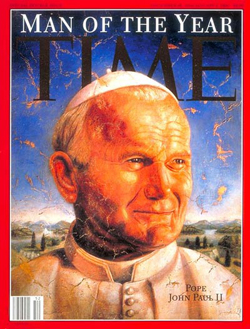
By 1994 — more than 15 years into his papacy and about 10 years from his end — John Paul was hitting his stride.
He was so admired the world over that a visit could inspire rock-star adulation from the crowd. He was a vocal and determined Pope, keen on spreading his message far and wide, which he did regularly from the pulpit but also in his best-selling book Crossing the Threshold of Hope. But it was his will, which he controversially imposed upon the world in September 1994, that would set him apart in history.
At the U.N.'s International Conference, John Paul and his emissaries helped defeat a U.S.-backed proposition that the Pope feared would encourage abortions worldwide. It was a controversial move and one the Pope was criticized for, but he defended his actions as necessary for the good of the church. In an interview with TIME he said, "The Pope must be a moral force."
It was this steadfast rectitude that TIME held aloft. "In a year when so many people lamented the decline in moral values or made excuses for bad behavior, Pope John Paul II forcefully set forth his vision of the good life and urged the world to follow," wrote TIME.
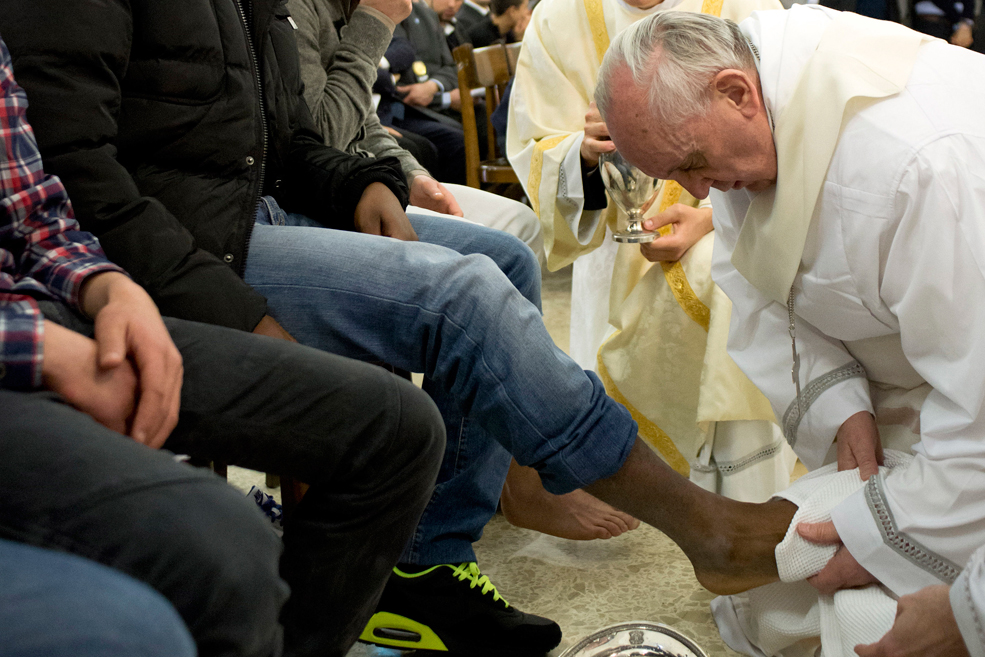
2013: Pope Francis
Having only inherited the papacy on March 13, Pope Francis is still settling into his role. But in that brief time, Francis has already stepped out of the mold set for him by his predecessors.
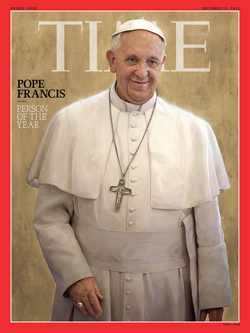
The first non-European pope in 1,200 years, Francis has proved to be remarkably humble and welcoming, whereas other popes have remained somewhat distant.
Francis came to power at a precarious time for the church, which has been rocked by a child sex abuse scandal that will undoubtedly weigh heavy on his zucchetto in the coming years.
While his answers on issues of women's rights, abortion, and gay marriage have been the church's, Francis has shown a level of understanding — a plea to respect the goodness of individuals over the label bestowed upon them — that has endeared him to millions. In this respect, Francis offers a way for the divided church to agree to disagree on these controversial issues while still following through with its mission to spread mercy. And it is this potential for change and action that TIME honored.
"'Argue less, accomplish more' could be a healing motto for our times. We have a glut of problems to tackle. Francis says by example, Stop bickering and roll up your sleeves. Don't let the perfect be the enemy of the good — and important thing for the world to hear, especially from a man who holds an office deemed infallible," wrote TIME.
Lauren Hansen produces The Week’s podcasts and videos and edits the photo blog, Captured. She also manages the production of the magazine's iPad app. A graduate of Kenyon College and Northwestern University, she previously worked at the BBC and Frontline. She knows a thing or two about pretty pictures and cute puppies, both of which she tweets about @mylaurenhansen.
-
 Colbert, CBS spar over FCC and Talarico interview
Colbert, CBS spar over FCC and Talarico interviewSpeed Read The late night host said CBS pulled his interview with Democratic Texas state representative James Talarico over new FCC rules about political interviews
-
 The Week contest: AI bellyaching
The Week contest: AI bellyachingPuzzles and Quizzes
-
 Political cartoons for February 18
Political cartoons for February 18Cartoons Wednesday’s political cartoons include the DOW, human replacement, and more
